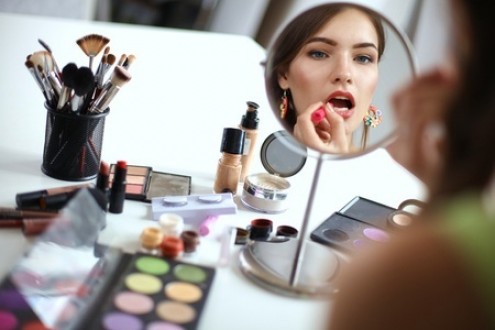A product "made with organic ingredients" can legitimately contain 30% toxins. Is it really safe for your skin?
Your favorite cosmetics may be killing you.
Biochemist Dr. Jennifer Dietrich recommends avoiding "Dr. Jen's Dirty Baker's Dozen" ingredients in your cosmetics:
- Sodium/Ammonium Laurel Sulfate. It gets absorbed by the body and irritates the skin.
- Parabens. Linked to cancer; causes endocrine disruption and reproductive toxicity.
- Propylene Glycol. This is often contaminated with known carcinogens.
- Phthalates. Present in many fragrances and linked to endocrine disruption, liver/kidney/lung damage and cancer.
- Petrolatum. This suffocates the skin, leads to premature aging, aggravates acne, and can be found in breast tumors.
- Cocamide DEA/Lauramide DEA. Carcinogens.
- Diazolidinyl Urea. Releases formaldehyde, causes skin and eye irritation, tends to cause allergic reaction, and can have reproductive side effects.
- Butyl Acetate. Vapors can cause dizziness and drowsiness. Can cause skin to dry out and crack.
- Butlated Hydroxytulene. Causes skin and eye irritation.
- Ethyl Acetate. Dangerous to the respiratory system.
- Toluene. Disrupts the immune and endocrine systems, as well as fetal development.
- Triethanolamine. Skin, eye, and hair irritation. High doses can have negative effects on organs.
- Talc. Linked to ovarian cancer and reproductive problems.






